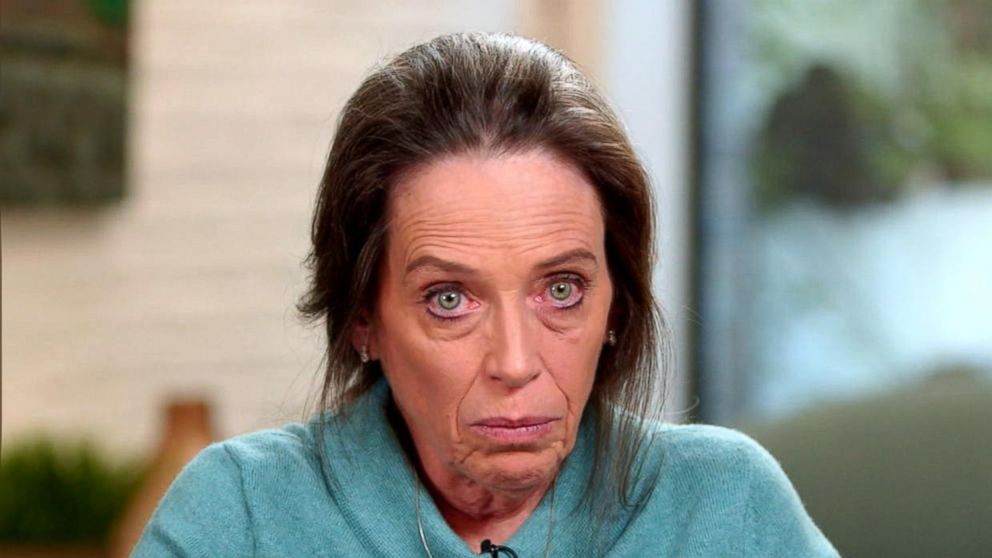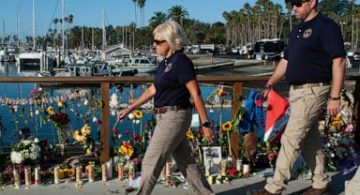
Transcript for Face transplant donor’s mother’s difficult decision: Part 4
Reporter: Yuba city, California, is located near the feather river at the base of Sutter buttes. Referred to as the smallest mountain range in the world, but one of its sons has one especially steep mountain left to climb. So now you’ve got a doctor. You’ve got a procedure. You’ve got hope, but you need a donor. But we need a donor. What was the waiting like? It was tough. Reporter: It’s a kind of macabre paradox for a mother, knowing that her son’s good fortune will only come at the expense and sad misfortune of another mother’s son, somewhere, sometime. Just a kid who had so much to give, and it was cut short. Until it happens to you, you can’t believe what it feels like to lose a child, especially when your child’s death was preventable. Reporter: His name was will, Sally fisher’s only child, whom she raised as a single mom in New York City. What was his childhood like? He had a pretty remarkable childhood. I mean, he was an amazing kid. He was extremely compassionate. He was extremely kind, and generous to a fault. And as a mother, I’m sure that’s what you’re most proud of. Yeah. Reporter: But it wasn’t just will’s spirit that made him special, she says, it was also his brilliant mind. His mind worked in ways that you couldn’t believe. He’d do wood working one day. He’d do ceramics another day. The third day he would do chess. Reporter: Will became a child prodigy, competing in more than 200 tournaments. He won many titles. A New York state champion. The Pennsylvania state championship. Reporter: His family seeing comparisons to the legendary chess champ, and namesake of the movie “Searching for Bobby Fischer.” I’m not concerned about other things. Like friendships. My sister was very worried cause she said, “Look at Bobby Fischer. They’re all insane. Doesn’t it worry you that he likes chess?” Reporter: By his teen years, Sally was worried about will, seeing him struggle. Unable to connect with his peers. It’s hard to be a kid when you have the mind of an adult. He was diagnosed with mental illness when he was in college. Reporter: Sally says the only thing worse than her son’s illness was the way the world began to treat him. There’s tremendous stigma. Society disregards and discards people with mental illness. He wasn’t happy. So you don’t want to see your child suffer, especially suffer when you know that we’re still in a situation where the illness that he has is something that the world doesn’t care about. Reporter: Will had to leave college and back home in New York, he was given psychiatric treatment, but Sally says eventually those prescribed medications weren’t enough. She was fearing the worst. What were you afraid was going to happen? I knew he was self-medicating. What do you think he was doing with those drugs? Masking pain? I think that he was trying to feel better. He didn’t want to die? He didn’t. I don’t think he wanted to die. He said, “Mommy, don’t let me die.” Reporter: It was a night last December, just days shy of new year’s, when will ended up in the emergency room, but once he was stabilized, the hospital wanted to discharge him. Sally says she begged them not to. I don’t think it was fair to discharge will to care for himself, when he was clearly unable to. I said, you can’t. If you discharge him, he will be dead in 24 hours, and it was the next day that I walked into his room, and he was like this. Slumped over, he had stopped breathing. Reporter: This time, it would be too late to save will. That brilliant mind declared brain dead by the time he arrived at the hospital. I think there was a combination of opioids in his system, and I’m not sure which had been prescribed, but it was both prescribed and not prescribed. That’s what ended his life. A lethal combination. It’s just such a loss, you know. And you just can’t — you can’t believe that he can’t — that he can’t live his dreams. Reporter: But what if through will someone else could? Still on a breathing machine, measures were then taken to harvest will’s still living precious organs. In the midst of your unimaginable grief and shock, you decided to take measures to make sure that will’s organs could be saved to be donated. Actually it wasn’t my decision. It was will’s. Reporter: It turns out, years earlier, as a teenager, will had registered with New York state to be an organ donor. He wouldn’t understand logically why someone wouldn’t be an organ donor. Maybe some of that compassion that you were talking about. Yeah, if you die and you have something that somebody could use, why wouldn’t you save a life? Reporter: Organ donation is one thing, but donating his face? It’s not an ordinary thing to be asked to donate. No. Reporter: Dr. Rodriguez says the request is a very special one, handled with utmost sensitivity. That’s asked at a separate time. A separate consent. The idea you know a face is — It’s so personal. Yeah, and especially Cameron suffered his injury at the age of 23, which was the age Willie was when he died, and I just thought, he can give this kid a face, and Willie had a beautiful face. There was no question in my mind that this is something will would have wanted. Reporter: When Dr. Rodriguez rushed from nyu to the hospital where will was, he could hardly believe what he learned. Will had all the pre-requisites, skin tone, the same size skull, plus a matching blood type. But beyond those physical similarities, Rodriguez couldn’t believe how closely mirrored their emotional plights were as well. Both cam and will shared commonalities in their life with issues related to depression, dependence, and we knew that these families were meant to at some point meet. And it felt fated to you as a
This transcript has been automatically generated and may not be 100% accurate.





